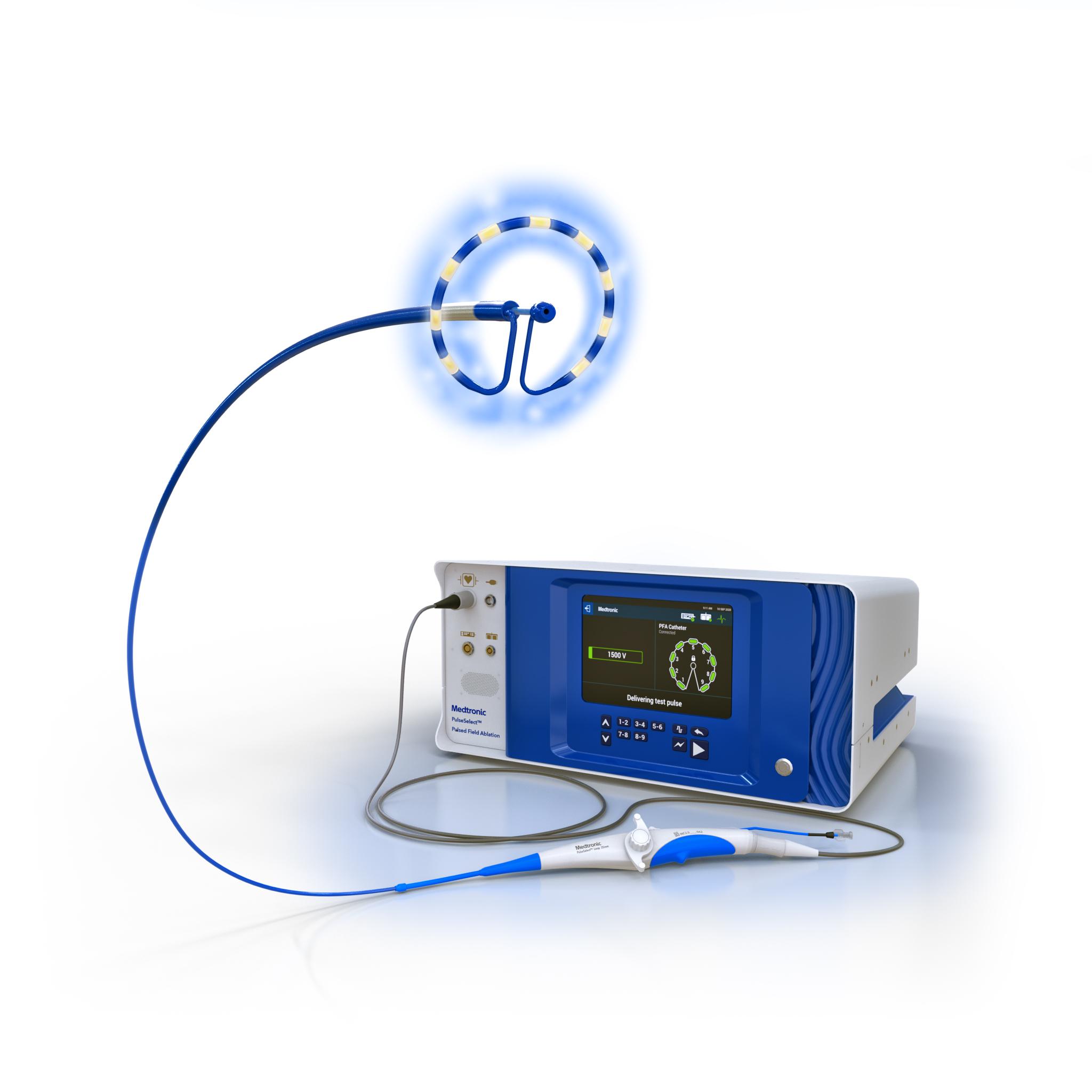An Innovative, Minimally Invasive Treatment for AFib
Pulsed Field Ablation Poses Fewer Risks for Patients With Atrial Fibrillation
Published May 2024
Atrial fibrillation (AFib) is the most common type of irregular heartbeat or arrythmia. It impacts up to 5 million people in the United States, a number that is anticipated to reach 12.1 million by 2030.
AFib is a heart rhythm disorder that is characterized by fast and irregular heartbeats from the upper chambers of the heart. It can significantly impact patients' quality of life and increase the risk of stroke, blood clots and other complications.
AFib can be treated in a variety of ways, including using medication, ablation and surgery. Until recently, two standard, nonsurgical options were used to treat AFib when medications could not adequately manage heart rhythm:
Pulsed field ablation represents a significant advancement in the field of electrophysiology.— Bradley P. Knight, MD
- Radiofrequency ablation, which uses heat energy to destroy the abnormal electrical pathways
- Cryoballoon ablation, which uses cryo, or freezing energy, to destroy the abnormal pathways
These two ablation techniques, performed through a catheter, create scar tissue and disrupt abnormal electrical signals in the heart. While both options work well for treating AFib, some rare complications can occur, such as internal bleeding, stroke or a paralyzed diaphragm.
A Different Way to Treat AFib
An innovative procedure called pulsed field ablation not only reduces the risks associated with standard ablation, but also reduces treatment time and improves overall patient outcomes according to clinical trials conducted at Northwestern Medicine.
“Our heart rhythm group has worked closely with our industry colleagues for decades on clinical trials,” Dr. Knight says. “In this case, Northwestern Medicine was the only Chicago healthcare center that worked with two organizations, Medtronic and Boston Scientific, to serve as a site for clinical trials, testing their pulsed field ablation systems in patients.”

Pulsed field ablation (PFA) delivers precisely controlled electric fields to target and ablate (remove) the tissue responsible for AFib. This innovative approach offers several potential advantages, including:
- Reduced risk of complications
- Shorter procedure times
- Improved outcomes for patients
“Pulsed field ablation represents a significant advancement in the field of electrophysiology and underscores our commitment to providing the highest standard of care to individuals living with AFib,” says Dr. Knight. “PFA has the potential to be a real-game changer for our patients and the way we treat AFib.”
Inside the Studies
In the United States, most new ablation catheters or energy sources must undergo an evaluation as part of a multicenter, U.S.-based clinical trial that enrolls a few hundred people to determine the safety and efficacy of the procedure. Northwestern Medicine participated in two clinical trials that helped PFA get approval by the Food and Drug Administration (FDA).
Overall, the clinical trials found that patients who had PFA were more likely to have:
- Excellent outcomes
- Fewer major complications
- Significantly faster procedure time
- Good overall freedom from AFib after one year
“Most new medical devices are first developed using computer models, engineering and other testing,” says Dr. Knight. “However, carefully designed and executed randomized clinical trials at centers of excellence such as Northwestern Medicine are the best source of information when trying to determine if a new procedure is safe and effective — and are almost always required by the FDA.”
Learn more about treatment options for AFib.







